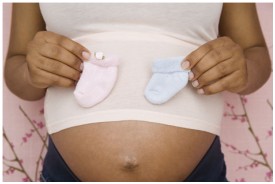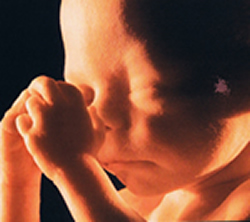11 Things You May Not Know About Twin Pregnancies
 In the United States of America only 3% of all pregnancies are twin or multiple pregnancies. This means that most women who are pregnant with twins find it difficult to find out what they can expect. For example, twin pregnancy symptoms are different from a normal pregnancy. Twin pregnancies also carry a higher chance of developing risks such as gestational diabetes, your babies have a higher chance of premature delivery, they have a lower birth weight and a greater chance of being born by C-Section.
If you are expecting twins and you are unsure of what you can expect you are not alone. We have a list of 11 things which you may not have know about being pregnant with twins.
In the United States of America only 3% of all pregnancies are twin or multiple pregnancies. This means that most women who are pregnant with twins find it difficult to find out what they can expect. For example, twin pregnancy symptoms are different from a normal pregnancy. Twin pregnancies also carry a higher chance of developing risks such as gestational diabetes, your babies have a higher chance of premature delivery, they have a lower birth weight and a greater chance of being born by C-Section.
If you are expecting twins and you are unsure of what you can expect you are not alone. We have a list of 11 things which you may not have know about being pregnant with twins.
- You are more likely to become pregnant with twins naturally when you are in your 30s and 40s We all know that as you get older it becomes more difficult to fall pregnant, and if you are pregnant and over 35 then the chances of complications increases dramatically. What you may not know is that as you get older you are also more likely to have twins or multiples This is because as you got older your ovulatory cycles become less consistent and so there is more chance that you may ovulate two follicles at the same time.
- When pregnant with twins, you may need extra folic acid Twin pregnancies require additional folic acid – usually to help reduce the chances of any birth defects and other complications such as spina bifida. 1mg Of folic acid is recommended per day when pregnant with twins, where a normal pregnancy would require 0.6mg.
- Women who are pregnant with twins spend more time at their obstetrician There is no secret to this one, as twin pregnancies increase the chances of complications they also require twice as much monitoring. On the up side though, the chances of having more ultrasounds carried out also increases.
- Morning sickness – it’s going to be worse With twin and multiple pregnancies your levels of hCG which will be running through your system will be more elevated than if you were having a single pregnancy. This means that there is a very good chance that you will suffer morning sickness which is more severe than if you were having a normal pregnancy. The good news is that it wont last longer just because you are having twins, and you can look forward to it dying down from the 12th week onwards.
- Bleeding, or spotting is more common with twins A little bleeding during pregnancy is normal, especially in the first. If you are pregnant with twins then there is a good chance that you are more likely to experience spotting. As long as your bleeding is not associated with bright red blood, temperatures or fevers then there is no reason to panic. If you are however concerned about any bleeding you are experiencing, then speak with your healthcare provider.
- You wont feel your babies move earlier Just because you are having twins does not mean that you will feel your babies move earlier than normal. You can expect to feel your babies move just as you would if you were having a normal pregnancy
- You are going to gain more weight than single pregnancies Your weight gain over the course of your pregnancy is going to be very different to that of a normal pregnancy, even though your babies will be smaller. A normal pregnancy weight gain is around 25 pounds, but with twins it can be between 30-35 pounds. This is because you have two babies, two placentas and more amniotic fluid.
- Higher risk of developing gestational diabetes With twins there is a higher risk of developing gestational diabetes and those who develop gestational diabetes during pregnancy are more likely to develop type 2 diabetes later in life.
- Higher risk of preeclampsia Preeclampsia is marked by high blood pressure, protein in the urine, and sometimes swelling in the feet, legs, and hands and it is the precursor to the more serious, potentially fatal eclampsia. There is a greater chance of developing preeclampsia with twins.
- Labor may come early with twin pregnancies Most pregnancies with twins come to an end around 36 to 37 weeks. You may also have a higher chance of going into premature labor with twins and unfortunately, there is no evidence that bed rest alone prevents preterm labor or delivery in twin pregnancies, and the use of agents to stop preterm labor have not been proven to be effective either.
- Caesarean section deliveries are more common Because there is a higher chance of having a baby in a breech position there is a higher chance of needing a c-section to give birth to your twins. However, if both babies are lying favourable then there is no reason why a natural birth is not possible either.
twin pregnancy



